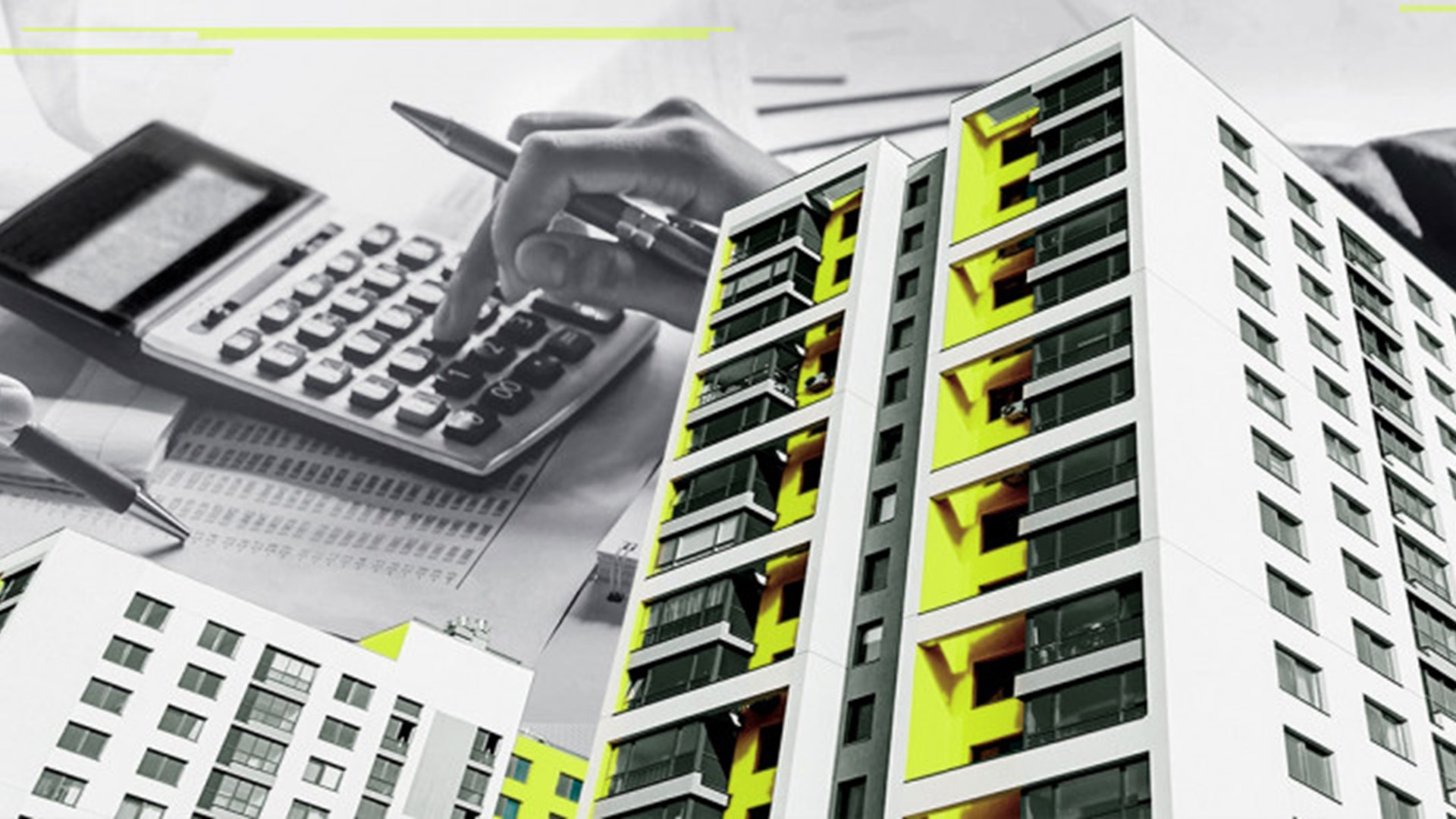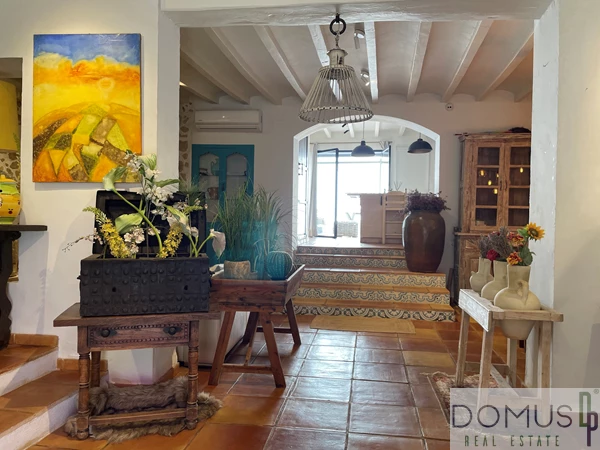Spain has traditionally been a country of owners and housing, one of the main assets that has channeled the savings of individuals. According to data from the Bank of Spain, the real estate assets of households stand at 5.78 billion euros, the highest since 2010.
But in a scenario of uncertainty such as the one we are experiencing, marked by high inflation, high energy prices, a war in Eastern Europe and possible rises in interest rates in the coming months, many individuals are wondering if the house is still a good option to invest or if it is convenient to postpone the decision for the future.
According to the experts consulted by idealista/news, housing remains an alternative, either to be used for rent or to be reformed and sold later, although it is advisable to avoid risks and analyze the operation well before buying. We review why housing is an alternative to make savings profitable, what factors must be taken into account, what are the risks that may arise and whether or not housing investment will grow in the coming months.

Housing, is it now a good investment?
Miguel A. Alonso del Val, professor of the Master in Real Estate at the University of Navarra, has it clear: "In a scenario of inflation and low interest rates, it is advisable to invest in values such as housing, which provide a certain security, allow save and are a guarantee of certain profitability”, he affirms.
Julián Salcedo, president of the Forum of Real Estate Economists, also defends this position and recalls that, for the middle class, investing in housing is a way of protecting savings through a real asset that does not have the volatility of other investments.
“Economists, in times of uncertainty, recommend investors to stay in a liquidity position. In addition, housing has become more expensive in 2021 and will continue to rise in 2022 due to the combined effect of inflation and higher material prices. My recommendation is favorable to investment in housing, because it has become a refuge asset, which allows to hedge against inflation and price increases”, emphasizes Salcedo.
Along the same lines, Eduard Amorós Kern, professor in the Business Area of the International University of Valencia, recalls that "as long as interest rates remain low and there is some access to credit, housing will remain a sector in the make the investment attractive. Keeping the money in a savings account, in which they do not offer you any type of interest, in a scenario of inflation will mean a loss of relative purchasing power. Faced with this, it may be interesting that part of our savings be invested in those products that are in demand, as is the case with housing at the moment”. In addition, he insists that "land is a finite good", so "in the long term it will be profitable to invest in housing".
For his part, Jesús Duque, vice-president of Alfa Inmobiliaria, explains that “housing, in addition to being the space in which every person performs, and where they develop their vital project, is an investment that is revalued in the future. Therefore, as long as the debt ratios advise it and that we are not at the highest price peak, it is interesting to acquire a home”.
What to look for when investing in housing
Although economists and real estate professionals value investment in housing positively, they also remember that there are many factors that will determine the profitability of the operation. In general terms, they recall the importance of not borrowing excessively, thinking long-term and analyzing the market in search of a well-located property with characteristics that meet demand.
“Investment in housing is always good, and right now it can become a refuge value, but not everything goes. As in any other investment, we must not get carried away and the first thing is to analyze the asset we want to buy and its expectations. And another important point is to allocate a percentage of the assets to housing, not just focus on real estate”, highlights Luis Corral, CEO of Foro Consultores Inmobiliarios.
Corral also explains that, in the case of allocating housing to the rental market, it is convenient to "fit the equation of investment and expected income". Therefore, he recommends “choosing a market with proven demand and complementary types of demand. That is to say, that it can be rented as a long-term dwelling, tourist and even as an office, and that is achieved more in urban centers”. In addition, he advises negotiating the rent revision clauses in the contract well, taking into account inflation.
The professor at the University of Valencia, for his part, considers it essential “to be clear that, if we are going to part with capital to invest, it is because we are not going to need it in the short term. And even more so when investment in housing is important to understand in the long term”.
From here on, adds Amorós Kern, “the best thing to do is study the market a lot. The more information we have, the more accurate we can be in our decision. That is, to analyze how the prices of an area have evolved, both for purchase and rental, to know at what moment they are, what are the factors that can cause increases or decreases, what demand and type of rental demand exists in the area (tourists, professionals, students…), what costs will I have associated with the investment, what interest rate will I obtain with the investment or what risk factors exist”.
The professor at the University of Navarra explains another of the keys: that there is no over-indebtedness with the purchase, that it is not bought on credit and that a short-term speculative return is not expected from this investment.
In his opinion, it is good to have an initial savings contribution that is not less than 25% of the value of the purchased good, although it is advisable to have 30% -35%, so that the family or personal economy does not be stressed by any rise in interest rates or inflation, as is the case now.
Alonso del Val also insists that the location of the property, its distribution and the construction quality is essential for the investment, "since it is a key condition for future transfer to third parties." For example, remember that the fact that the house has a terrace is a value that is here to stay after the pandemic, while it is not advisable to invest in very unique assets, with little future demand, or in buildings with poor architecture or poor construction. , because they could have a difficult exit to the market.
In this sense, the vice president of Alfa Inmobiliaria recalls that, despite the fact that small towns and chalets became attractive during the pandemic, “the traditionally consolidated neighborhoods of the cities have already recovered all their interest. Even now it is the case that the significant rise in the price of electricity and gas that we already have, and that we do not know how long it will last, has caused a loss of interest in large single-family homes, where the costs of heating and air conditioning They can be unaffordable."
Finally, Duque also recommends taking into account the degree of maintenance of both the home and the building, its orientation and views, the height, and additionally those services that are increasingly in demand such as the garage in the same building, swimming pool or leisure areas and garden”. Thus, it is key to know well the costs to be assumed.
The main risks to watch out for
The experts consulted insist on the need to invest prudently and without forgetting risks such as the probable rise in interest rates this year, especially if part of the purchase requires bank financing, or rent regulation, in the event that the property the lease is to be allocated. And they also warn of the danger of buying an overpriced home and the impact that the loss of purchasing power of tenants can have.
One of the main risks is the rise in interest rates, especially if the small investor needs to finance a large part of the operation with a mortgage. The market discounts that the European Central Bank (ECB) will raise the price of money this year, probably around the summer, which will mean an extra disbursement via interest on loans. To cover this risk, experts recommend betting on fixed mortgages, which allow monthly installments to be decoupled from fluctuations in interest rates and the Euribor, although they warn that this alternative will be increasingly expensive.
In this sense, Emiliano Bermúdez, general deputy director of donpiso, advises "doing numbers when looking for financing, comparing the different offers well and choosing what is best in each case", although he admits that personally he would choose a fixed loan.
On the other hand, the president of the Forum of Real Estate Economists focuses on the regulation and legal insecurity that currently exists in the rental market.
“Housing as an investment offers a reduced but positive return, although the measures provided for in the Housing Law Project limit the ability of owners to set rents and other conditions, so that there is great uncertainty about the return that it will be obtainable once it enters into force (if it ever enters). But the greatest risk is the possibility of expropriation of the right of use, as several autonomous communities have already done, in the event of having the dwelling unoccupied. That is something that housing investors must take into account”, explains Salcedo.
Therefore, his recommendation is to analyze the regulations that regulate the rental of housing in the area before investing, and bet on locations such as Madrid, where the supply of housing is low and the demand is high and, above all, where they will not come into force. measures that limit income, as the regional government has assured.
Another risk that Alfa Real Estate detects is buying an overvalued home. “With inflation, every day that we have our savings in the bank they are losing their value and given the forecast that we are facing a long period of inflation, houses will rise in price. This tells us that the most profitable thing is to try to buy as soon as possible, but always analyzing the market well, or letting yourself be advised by a real estate agent, since we are already seeing unjustified overvaluations of homes, waiting precisely for this effect”, Duke alert.
Along these lines, the professor at the University of Valencia recommends considering pessimistic scenarios in an investment. “In general, we tend to carry out very optimistic and subjective analyzes when it comes to investing. During the previous housing bubble, everyone thought that housing would always prices rose, and few remembered the period of the 1990s when housing prices fell. The devastating effects of the last housing bubble and of those who had bought a home at a very high price are beginning to fall into oblivion”, warns Eduard Amorós Kern.
The real estate analyst Beatriz Toribio also puts on the table other factors that could pose a risk for the investment: for example, a possible higher than expected price of new construction homes, delays in the delivery of real estate or the impact of increases of the CPI in the pocket of the tenants.
On the one hand, Ella Toribio affirms that “the inflationary pressures that we are suffering will have a direct impact on the rise in prices and the most affected will be new-build housing. The increase in the price of raw materials and essential materials for construction and the crisis in their supply as a result of the war will cause higher price increases than expected and delays in the deliveries of new developments”. In the case of contracts, the analyst recalls that, since most are referenced to the CPI, "potential landlords will have to weigh whether to pass on these increases to their tenants, since, in a context of high inflation, the purchasing power of Many families will be affected and it could cause problems at the level of non-payment or termination of the contract by those tenants who need a cheaper rent.
More investment in housing is coming
Despite the fact that the current scenario invites caution, since it is still not clear whether we will see increases in interest rates, when inflation will fall or how long the conflict between Russia and Ukraine will last, the experts consulted predict that investment in housing will continue to rise in the coming months.
The Alfa Real Estate network reflected in a recent study that 10% of the homes brokered by the chain, which currently has more than a hundred franchised agencies in Spain and another 110 internationally, are already destined for investment. Of this total, approximately 90% are investors who have bought to rent and 10% who are going to reform and sell immediately.
On the other hand, the consulting firm JLL estimates that rental housing will be the star asset of real estate investment in Spain in the first quarter of the year, in which it could attract around 1,000 million euros, more than a quarter of the total . All a sign that the investment will go further in the coming months.
According to the president of the Forum of Real Estate Economists, investment in housing is practically “the only one that is not going to be affected downwards by inflation” and he believes that in the future it will continue to grow, although foreseeably at moderate rates.
The professor of the Master in Real Estate at the University of Navarra also maintains that investment in housing has gained strength in recent months and anticipates that, “judging by the demand for land in well-located areas, it is a sustained trend that It will not be reduced this year because, despite the external circumstances, there is an unsatisfied demand that accumulated during the years of financial crisis.”
An argument also pointed out by RTV Real Estate Group. “There is still a lot of unmet demand that should have been made during the years of the pandemic. And the high levels of inflation, and the forecast that they will continue in the medium term, will attract investors to the residential market, increasing the number of transactions”, maintains the group.
Finally, the deputy general manager of donpiso recalls that, after the pandemic, the first thing that recovered was investment by large investors, although he expects that more and more small savers will join the market, if inflation remains at around elevated levels. "When things get back on track and tensions are eliminated, a rebound could take place with rises even higher than those seen so far," concludes Bermúdez.
Author:@Ana P. Alarcos 23 March 2022, 6:04


